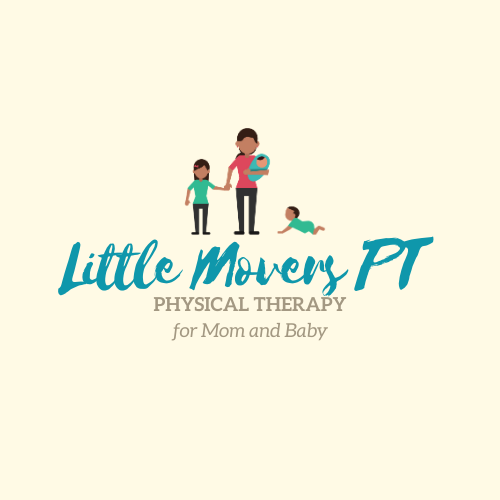Why are pediatricians gaslighting new parents so frequently these days?
/Whether it’s in my physical therapy office or a DM through instagram I have at least one family a week that gives me the same story. “Beth, my baby is so gassy, they hate being put down on their back, they arch their back and go stiff while being fed, and I have to walk the halls for hours in the night. My pediatrician told me the baby will grow out of it and it’s probably just colic.” How can it be that in 2024 we are giving parents the same BS answer of “It’s just colic”?
First of all, colic is a way to describe a group of symptoms whether that be bloating and gas, excessive crying, silent reflux with arching or swallowing, consistent spit up, and the need to be constantly held. But colic isn’t the actual DIAGNOSIS. There is a reason that the baby has one or all of these symptoms. Let’s discuss them.
Low Muscle Tone: When a baby has low muscle tone it will typically be in both skeletal and smooth muscles. The oral muscles that are lax will allow air to enter when feeding, causing aerophagic reflux. In addition, the sphincter between the stomach and esophagus has low tone, allow reflux to come up easier.
Tethered Oral Tissues (tongue/lip/cheek ties): TOTs will pull the tongue off the nipple, retract the tongue, and use a compensatory pattern to eat, leading to aerophagia and body tension. TOTs also contribute to speech, solid feeding, oral hygiene issues, and sleep difficulties. TOTs dont allow the tongue to rest on the roof of the mouth which leads to mouth breathing and light flutter sleep rather than deep restorative sleep. The lack of good sleep contributes to the domino affect of the “colic” symptoms.
GI Distress: Babies stomachs can be upset for an array of issues. The baby may have a food allergy or intolerance, leading to reflux. They may inherit gut dysbiosis from their mother. They may have an immature gut, especially when delivered via cesarean. These all contribute to colic symptoms and are a core issue.
Tension: all of the above root causes also lead to body tension. When the body is tense you then develop more compensatory feeding and sleeping patterns, leading to a never ending cycle.
So the ultimate question is, if we know what actually causes colic, why aren’t we treating the root causes? The problem lies in the backlash of these diagnoses. Many doctors have named tongue ties and food allergies as “fads”. There have been articles speaking out against frenectomies by big publishers which lead to fear mongering. What most medical providers look for when considering a diagnosis is research. The good news is that we have the entire hierarchy of research on these issues, including the gold standard double blind research studies. We can’t expect all doctors to be feeding and sleep experts but what should be included in a standard plan of care are appropriate referrals when difficulties arise. As the years go on the research is becoming more and more robust and the hope is that we can get all providers on the same page. For now, I’ve taken it upon myself to educate and empower the families themselves so they can seek out the providers who are right for their families. In addition, empowering families with research to show their providers help bring more awareness. The good ol’ case study when the baby gets better with therapy doesn’t hurt either.
If you’re stuck in a similar situation and want to become an advocate for your child, check out my courses at https://littlemoverspt.vipmembervault.com/
Elizabeth Morel has been a physical therapist since 2008 helping babies move to improve feeding and sleep. Her passion is educating families about the importance of building an airway from the first days of life.


